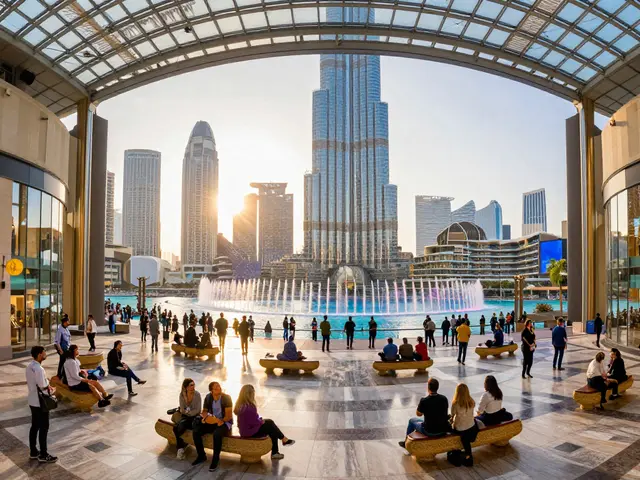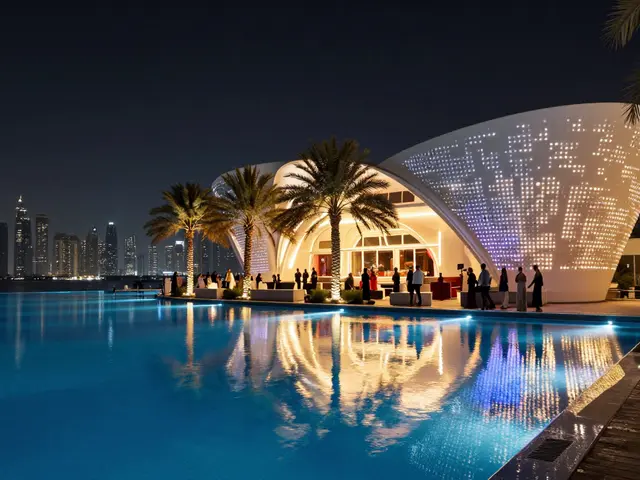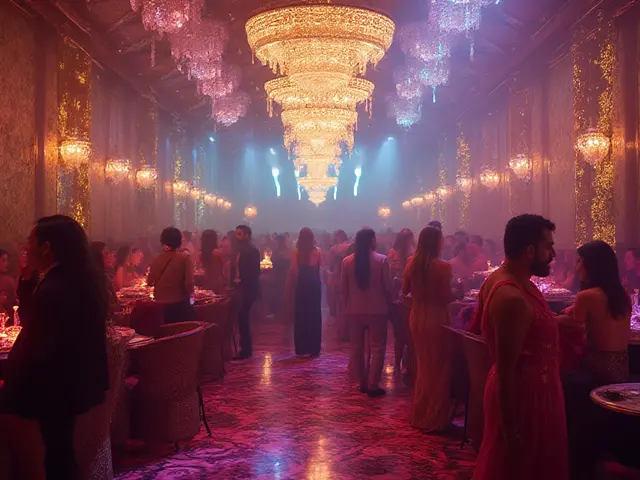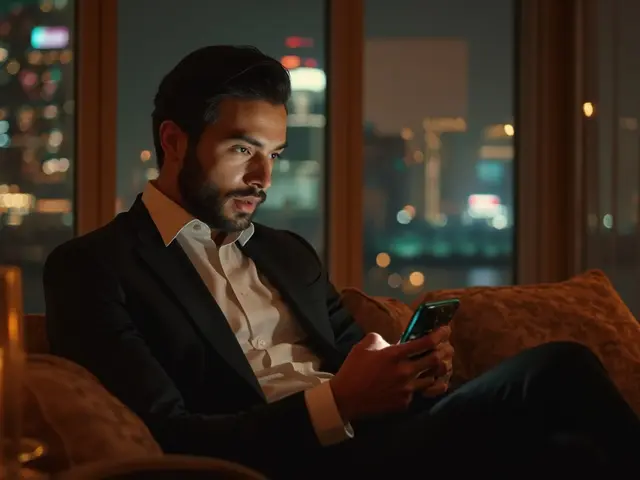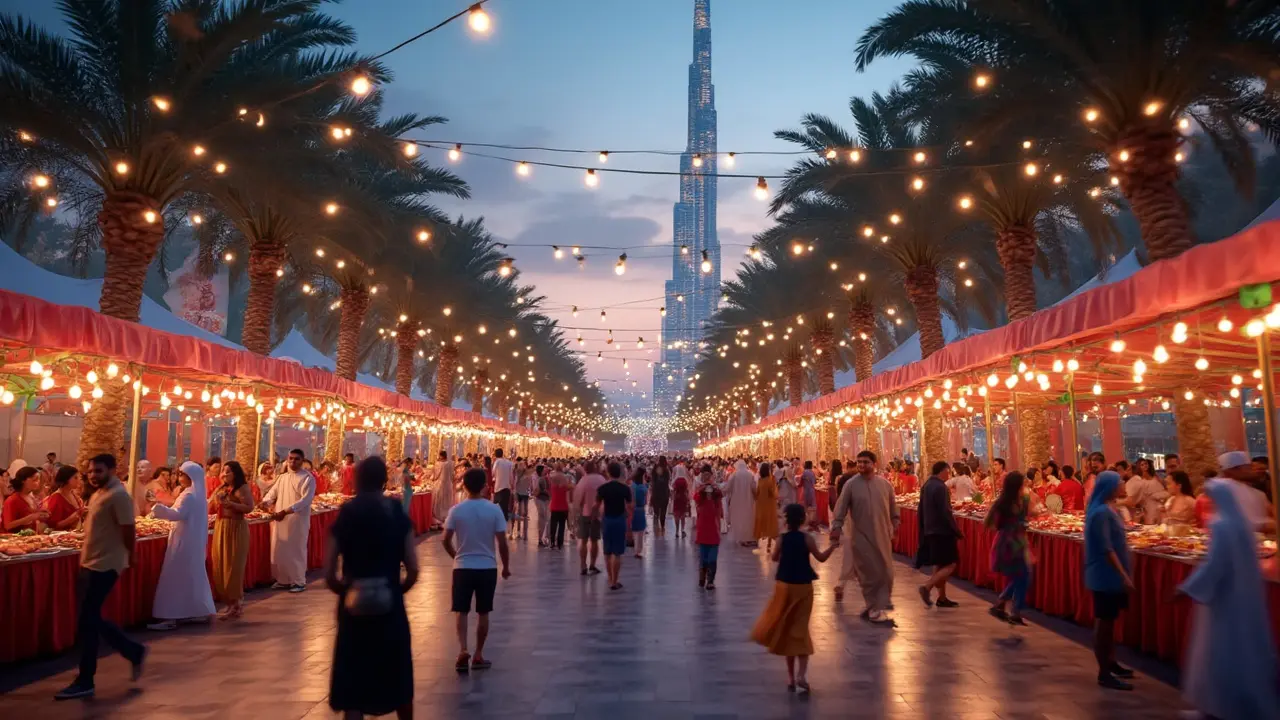
There’s nowhere quite like Dubai when it comes to bringing the world’s cultures together right under one sky-high skyline. Just walking through Al Seef or strolling past the bustling alleys of Al Fahidi district, you spot influences from every corner of the globe. Fancy a morning coffee with a view of old wind towers? You’ll stumble on a Turkish café next to a local Emirati shop in minutes.
If you’re looking for a quick way to get started, the Dubai Museum inside Al Fahidi Fort is your crash course in local heritage. Entry is low-cost and you’ll get a solid feel for the city’s transformation—from a fishing village to a global icon. And don’t miss a lazy Friday afternoon at Alserkal Avenue, where art buffs, musicians, and foodies crowd together. Their events are usually free and open to all—expats, locals, families, kids with face paint—everyone just merges in.
Planning your weekends around Dubai’s cultural calendar also pays off. Ramadan, Diwali, and Chinese New Year are all celebrated large scale here. During the Dubai Shopping Festival, suddenly every mall seems to double as a stage for folk dancers, calligraphy artists, or falconry demos. You’ll see pop-up events in places like City Walk and La Mer, where trying out a new heritage dish or craft is just part of the fun.
- Cultural Hotspots in Dubai
- Celebrating Heritage Festivals
- Experiencing Traditional Emirati Culture
- A Taste Around the World: Food Adventures
- Tips for Immersive Cultural Engagement
Cultural Hotspots in Dubai
It’s one thing to hear about Dubai’s blend of cultures—it’s another to walk through it. You’ve got spots here that pack history, street art, and international vibes into a single afternoon.
Start with Al Fahidi Historical Neighbourhood. This area is the real deal for anyone looking to experience what Old Dubai felt like. The winding lanes, sandy walls, and wind towers are just the start. You’ll find the Sheikh Mohammed Centre for Cultural Understanding (SMCCU) right here. They do popular heritage breakfasts, Arabic classes, and walking tours where you can ask what you’ve always wondered about local customs.
If contemporary art and quirky galleries are your thing, Alserkal Avenue in Al Quoz never disappoints. This old warehouse district turned creative hotspot now hosts more than 70 cultural spaces—everything from art studios to indie cinemas and Japanese coffee bars. The Avenue’s public calendar is packed, so you’re never far from a spontaneous art show or food pop-up.
Theatre fans and music lovers know the Dubai Opera. Whether it’s a Broadway musical, an opera night, or an Arabic comedy show, this downtown venue draws crowds. The open plaza outside is buzzing in the evenings, especially during the cooler months.
Markets are also a big part of the Dubai culture scene. Souk Madinat Jumeirah puts a modern spin on the old marketplace, mixing traditional goods and street performers with international restaurants overlooking the Burj Al Arab. For a proper sensory overload, try Global Village in winter. You can literally walk between mini-versions of more than 90 countries, snack on street foods from Asia to Europe, and watch cultural shows till late.
- Al Fahidi District: Best for history, guided tours, and traditional food.
- Alserkal Avenue: For art, film nights, and creative hangouts.
- Dubai Opera: Offers concerts, shows, and cultural performances year-round.
- Souk Madinat Jumeirah: Blends shopping, live music, and culture under one roof.
- Global Village: Open November to April, celebrates worldwide heritage with food, fun fairs, and shows.
For a quick comparison, here’s a table showing opening hours and entry fees for top cultural spots in Dubai:
| Hotspot | Opening Hours | Entry Fee |
|---|---|---|
| Al Fahidi District & SMCCU | 9am–5pm (Sat–Thu) | Free (fees for tours/meals: AED 35–95) |
| Alserkal Avenue | 10am–7pm (Mon–Sat) | Free (some events ticketed) |
| Dubai Opera | Show times vary | Tickets from AED 95 |
| Souk Madinat Jumeirah | 10am–11pm | Free |
| Global Village | 4pm–12am (Nov–Apr) | AED 22.50 (per person) |
Remember, the best experiences usually come from chatting with locals and expats at these places. Ask questions, join a class, or try one of those walking tours—Dubai’s cultural pulse is strongest when you get involved.
Celebrating Heritage Festivals
Dubai goes all out when it comes to celebrating heritage festivals—whether they're rooted in local traditions or come from around the world. The city’s annual diary is packed with events that shine a light on different cultures and beliefs, giving everyone a chance to join in the fun.
One thing you’ll quickly notice is how these festivals aren’t just side shows. For example, Dubai culture takes center stage during UAE National Day, when the whole city decks itself in red, green, white, and black. Skyscrapers light up, heritage villages spring up in parks, and there’s always a massive firework show at places like JBR and the Creek. You can join locals for traditional Ayallah folk dance, watch camel parades, or check out pop-up souks selling Emirati sweets and crafts. Schools, government offices, and private companies join in with their own cultural displays—everyone’s included.
But it’s not just about Emirati traditions. When it’s Diwali, the area around Bur Dubai transforms into a festival of lights. Shops on Meena Bazaar hang thousands of lanterns, there’s street food stalls, and Bollywood music fills the air. The Chinese New Year brings dragon dances to Dubai Mall and authentic street food nights at places like Dragon Mart. Even Christmas and Ramadan see special events—if you’re up for iftar tents and Ramadan Nights, check out tents at Dubai Opera or Madinat Jumeirah for authentic food and a buzzing vibe.
These festivals aren’t just a treat for the senses—they’re also family-friendly and safe. Most events have security, free entry, and special kids’ activities, so you can bring the little ones along without worries. Timings vary, but shopping malls and public spaces like Global Village, Expo City Dubai, and City Walk are almost guaranteed to have something going on.
| Festival | Main Locations | Month | Highlight |
|---|---|---|---|
| UAE National Day | Downtown, JBR, Al Seef | December | Fireworks, parades, folk dances |
| Diwali | Bur Dubai, Meena Bazaar | October/November | Light shows, street food fest |
| Chinese New Year | Dubai Mall, Dragon Mart | January/February | Dragon dances, food markets |
| Ramadan | Various iftar tents, Madinat Jumeirah | Varies | Iftar feasts, cultural performances |
| Christmas | Malls, Expo City | December | Trees, Santa’s grottos, light markets |
Want practical tips? Track dates and locations using apps like Dubai Calendar and social media. For festival hunting, rely on announcements from Dubai Tourism—they’re usually spot-on with guides and updates. If you’re coming as a family or with friends, plan transport early since parking can fill up fast near major spots. And always check if events require tickets—lots are free, but some bigger performances may need early booking.
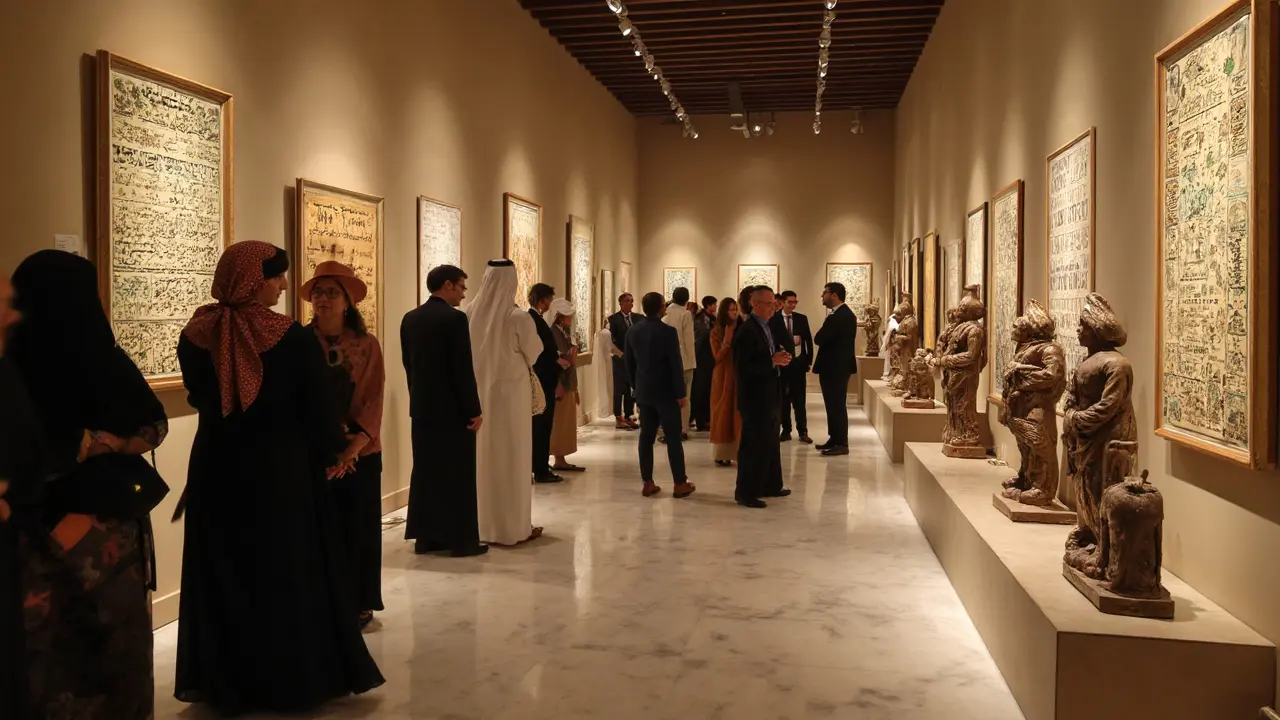
Experiencing Traditional Emirati Culture
If you’ve ever wondered what daily life was like in Dubai before all the high-rises, you don’t have to imagine—you can experience it firsthand. Start with a visit to the Dubai Museum at Al Fahidi Fort. The exhibits walk you through pearl diving tools, old trade routes, and how people survived desert life. They pull in over 1,000 visitors daily, so you’re not alone in wanting to connect with the roots of this city.
Stepping outside, the Sheikh Mohammed Centre for Cultural Understanding (SMCCU) is in a restored wind-tower house and offers some of the most direct insights. Their “Open Doors, Open Minds” breakfasts and lunches invite everyone to tuck into Emirati food while chatting openly about local customs. Don’t be shy about asking questions—they encourage it, and you’ll leave knowing the difference between a bisht and a kandura, or why Majlis seating means more than just furniture.
Want some hands-on tips? Here’s how to jump right in:
- Book a guided walking tour of Al Fahidi Historical Neighbourhood. Most routes show traditional homes, art galleries, and calligraphy workshops.
- Attend a coffee or date tasting at SMCCU—the dates are sourced from Liwa Oasis, which grow some of the UAE’s best.
- Take a dhow cruise on Dubai Creek. It’s not just for tourists—the ride passes the oldest Souks where traders still shout out bargains in Arabic.
- Try your hand at Al Ayala or Yowla—their traditional group dances are performed weekly at Global Village and in malls like Mall of the Emirates during big events.
If you want data on interest levels, check this out:
| Traditional Emirati Activity | Average Annual Visitors in Dubai |
|---|---|
| Dubai Museum (Al Fahidi Fort) | 500,000+ |
| SMCCU Cultural Meals | 25,000+ |
| Dhow Cruises | 220,000+ |
| Al Ayala/Yowla Events | 18,000+ |
Local etiquette matters, too. At public events, it’s fine to wear modest casual clothes, but if you’re entering a mosque with a guided group (like the Jumeirah Mosque tours), women get provided with abayas and men should wear long trousers. Respecting these norms is the quickest way to be welcomed as a guest, not just a tourist.
A Taste Around the World: Food Adventures
Dubai is basically a foodie’s dream if you want to experience flavors from every continent without ever leaving town. There are over 200 nationalities living here, which means you get everything from authentic Ethiopian coffee in Deira to Japanese ramen in Jumeirah. It’s common for someone’s weekend lunch to jump from Lebanese grilled meats in Satwa, to Filipino halo-halo in Karama, and end at a Pakistani biryani house in Bur Dubai. No joke, 18,000+ F&B outlets operated in the city as of 2024, giving everyone plenty of options to try.
If you’re keen to sample traditional Emirati food, check out Al Fanar or SMCCU’s (Sheikh Mohammed Centre for Cultural Understanding) breakfast spreads. Dishes like machboos and luqaimat are a must-try. For street food, the Ras Al Khor food trucks and Global Village food stalls keep things casual and pretty wallet-friendly too.
Don’t underestimate the power of Dubai’s homegrown brands. Chains like Wild & The Moon, Falla, and Salt blend local twists with global trends. You’ll find camel milk lattes making their way onto drink menus, and fusion concepts—like Emirati-Mexican tacos—pop up every season.
Here’s how Dubai’s top food neighborhoods break down by popular cuisine:
| Neighborhood | Cuisine Specialties | Must-Try Restaurants |
|---|---|---|
| Al Karama | Indian, Filipino, Pakistani | Biryaniwalla, Max’s Restaurant, Zam Zam Mandi |
| Jumeirah | Japanese, European, Iranian | 3Fils, Ravi, Nusr-Et |
| Downtown Dubai | Steakhouses, Global fine dining | At.mosphere, Zuma, Emaar Pavilion |
| Deira | Middle Eastern, African | Al Ustad Special Kebab, Ethiopian Star Restaurant |
If you want to try your hand at cooking, local companies like Kibsons deliver global produce straight to your door. Many groceries import special ingredients for Mexican, Korean, and Thai dishes—no more calling up a friend to sneak samgyeopsal in their suitcase. SMCCU even runs cooking classes for Emirati staples, if you’d rather learn with a group.
One quick tip—some of the best eats are found during Dubai Food Festival. Restaurants slash prices, new pop-ups hit the beaches, and food trucks organize tasting trails all over the city. So put on your stretchy pants and dig in to Dubai’s melting-pot food culture—trust me, your taste buds won’t ever get bored in this city.
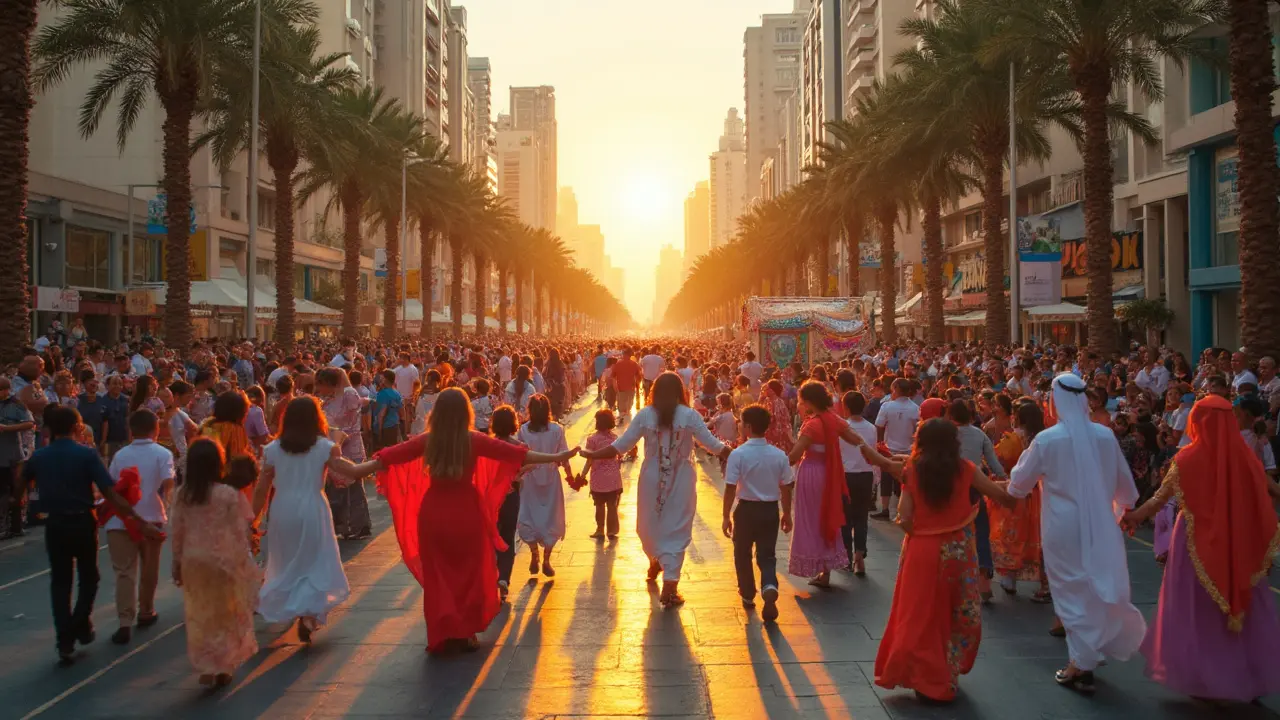
Tips for Immersive Cultural Engagement
If you want to really soak up Dubai’s mix of cultures, it’s all about putting yourself out there beyond just sightseeing. Here’s what actually makes a difference when living, working, or even just spending a few days in Dubai’s buzzing neighborhoods.
- Dubai culture isn’t just found in museums—it happens in day-to-day life. Hop on a traditional abra boat across the Creek for just AED 1, and you’ll find locals, tourists, and workers all sharing the ride. It doesn’t get more Dubai than this small boat commute.
- Take part in cultural workshops at spaces like the Sheikh Mohammed Centre for Cultural Understanding (SMCCU). Their “Open Doors, Open Minds” sessions are popular with expats and families. You can ask any question about Emirati customs over a traditional meal, no judgment at all.
- Follow local event hubs like Dubai Calendar and Visit Dubai for updates on free and paid cultural happenings. From the Festival of Lights in Bur Dubai to Ramadan tents at Al Majlis, these listings will keep your weekends packed.
- Try cooking classes or themed pop-up dinners, especially during Dubai Food Festival. Many restaurants in Jumeirah, Deira, and Karama team up with chefs from overseas and local communities to run hands-on evenings. You’ll end up with new friends and recipes to boot.
- For families, museums like Etihad Museum and the Children’s City in Creek Park mix learning with play, using interactive displays to explain UAE history and science through a global lens. Kids leave actually knowing what makes Dubai tick—way more fun than reading a guidebook.
Here’s a quick look at practical ways to connect with Dubai’s heritage and diversity:
| Activity | Location | Cost (AED) | Typical Audience |
|---|---|---|---|
| Abra Ride | Dubai Creek | 1 | All ages |
| Cultural Meal Experience | SMCCU, Al Fahidi | 95-160 | Expats, Tourists, Locals |
| Museum Visit | Etihad Museum | 25 | Families, Students |
| Cooking Class | Various (Dubai Food Festival) | 120-350 | Foodies, Couples, Groups |
| Festival Event | City Walk, La Mer, Malls | Free/Varies | Everyone |
Last thing—don’t stick to your comfort zone. Join a majlis if you get invited, greet local shopkeepers in Arabic, or try a dish you can’t pronounce. That’s how you go from being just a visitor to being a part of Dubai’s living, breathing story.
